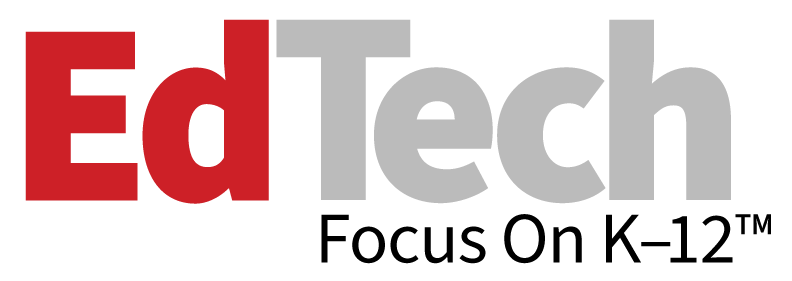Frame of Reference
Education industry is constructing a metadata framework to deliver more targeted Internet search results and improve learning.
Taking a cue from the search engine industry, a cross-section of the educational publishing industry has joined forces to create a framework to help learners easily locate materials online.
The Learning Resources Metadata Initiative (LRMI), launched in early June, is a collaborative effort spearheaded by the Association of Educational Publishers (AEP), a nonprofit group for educational content developers, and Creative Commons, a nonprofit that promotes the legal reuse of copyrighted intellectual and artistic works.
Funded by the William and Flora Hewlett Foundation and the Bill & Melinda Gates Foundation, LRMI will provide a vocabulary for the educational content found online. “Content creators will tag their content with this metadata so that learning management systems, web browsers, search engines and other tools will be able to provide learners more efficient and robust access to educational resources,” explains Greg Grossmeier, education technology and policy coordinator for Creative Commons.
Grossmeier believes the project will be successful, in no small part because of the cooperation between open and proprietary publishing entities. For either party to take this on as a solo effort would be much less effective. “If we have differing standards for how educational objects should be described, then they will not be widely adopted,” he says. And that “disadvantages everyone, including students.”
Charlene Gaynor, AEP's CEO, agrees that open collaboration will help this project succeed where other initiatives have failed. “There are lots of voices to be heard, and we don't want to exclude anyone,” she says. In fact, one of the first orders of business is to review preexisting models or attempts to create a metadata framework and extract knowledge from them.
AEP has agreed to handle all communications efforts pertaining to LRMI and Creative Commons will oversee the development of the technical specifications themselves. Once they've drafted the framework for educational resources, they will then submit it to schema.org, a collaboration between Google, Yahoo! and Microsoft Bing to create a shared markup vocabulary for webmasters. The search criteria will be based, at a minimum, on the Common Core State Standards to help align Internet searching with the subject matter K–12 students in the United States are expected to learn before entering college or the workforce.
Because the working group is still in its infancy, AEP and Creative Commons are recruiting representatives from across the educational community to assist in the framework development process. Several educational organizations, publishers and technology manufacturers already have expressed their support by becoming “project launch partners,” including the Monterey Institute for Technology and Education, Houghton Mifflin Harcourt and Promethean.
In addition to content creators and publishers, Gaynor hopes to see educators and students play a role in bringing LMRI to fruition.
The ABC's of LRMI
Once the task force has created a draft framework, it will solicit feedback from the community. AEP will soon launch an LRMI website where stakeholders can participate and stay informed. In the interim, individuals can join the LRMI mailing list by e-mailing their contact information to schema@aepweb.org.
If the proposed document gains buy-in from the industry, Gaynor expects a regulatory body will be established to evolve the framework and ensure that search engines recognize and use the metadata tags. The task force aims to complete the first draft this fall and launch the official specifications by early next year.
It's a future that Gary Lopez, executive director of the Monterey Institute for Technology and Education, craves. In 2007, his organization launched HippoCampus, a repository of high-value multimedia course content for high school and college students. The free courses HippoCampus offers aren't easily accessible to the general public, however, and a framework like LRMI could do wonders to mitigate, if not solve, that challenge.
28
The number of state departments of education that support HippoCampus, a project of the Monterey Institute for Technology and Education. The organization hopes LRMI's tagging will broaden the HippoCampus audience.
“Curricula is one of those things that requires specific characteristics. LRMI will make sure that [search] results take into account categories such as the learner's aptitude level, age, grade and location,” says Lopez, who is participating in the project. Location is particularly important, he adds, because each state has different mandates and uses different materials.
Ramona Pierson, chief science officer at Promethean, expects LRMI to result in deeper and more engaged learning opportunities for the global educational community. Similar metadata projects are under way in Europe and elsewhere, she notes, adding that it's essential for LRMI to stay connected to them. “Students today move across country boundaries, so it's important that content do the same,” she says.
According to Pierson, the ability to incorporate targeted data into Promethean's interactive whiteboards, assessment applications and other products would transform learning in profound ways. “Teachers could immediately locate and deliver customized materials based on a real-time analysis,” she says.
“We're proud that the learning industry will be the first [to do this], and we'll know we've achieved our goals when students and educators can quickly find exactly the right resources they need,” AEP's Gaynor says.
For more information, check out Creative Commons' LRMI wiki. Educators and other stakeholders interested in getting involved can learn more at groups.google.com/group/lrmi.
Getting Into the Schema Things
Microsoft Bing, Google and Yahoo! put down their gloves long enough to gather up a set of schemas, or HTML tags, that webmasters can use to improve search results for their materials.
Traditionally, search engines have a difficult time determining what's relevant on a webpage. The shared vocabulary of schema.org can be embedded into HTML markups so search engines easily understand the page's relevance and add it to appropriate queries. This schema also can enable new tools and applications that make use of the structure, its organizers say.
If successful, LRMI's metadata framework will be added to schema.org's suggested tagging structures.








